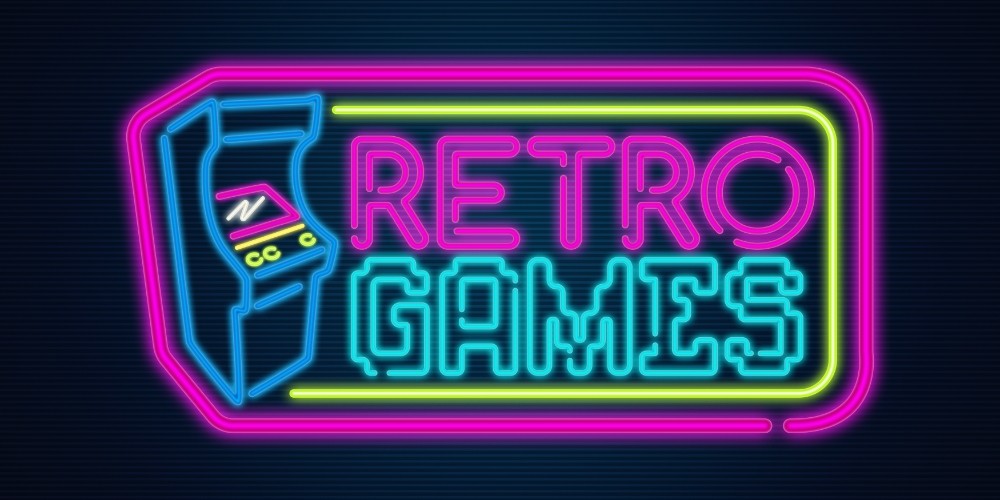Retro Gaming Resurgence: Why Old is Gold Again
Jan-10-2024

In recent years, we've witnessed a remarkable surge in the popularity of retro gaming. Vintage consoles, classic video games, and even old-school arcade machines have made a triumphant return, capturing the hearts of both nostalgic older gamers and curious new generations. This resurgence delves deeper than mere nostalgia; it's a fascinating blend of cherished memories, the timeless appeal of simplistic gameplay, and a rebellion against the increasingly complex nature of modern video games. Through this retrospective journey, we aim to explore the multifaceted reasons behind the retro gaming resurgence and why, in the realm of digital entertainment, old is indeed turning out to be gold again.
A Trip Down Memory Lane: The Lure of Nostalgia

At the core of the retro gaming resurgence lies nostalgia. For many, retro games evoke precious childhood memories and simpler times when the joy of mastering a game came without the pressure of online competition or the necessity to make in-game purchases. These games remind adults of their youth's carefree days, offering a mental escape from the complexities and responsibilities of adult life. Interestingly, this nostalgic allure isn't limited to those who grew up with these games. Younger players, too, are drawn to the vintage aesthetic and simpler gameplay, often seeking an authentic experience that contrasts sharply with the modern gaming landscape.
The Charm of Simplicity and Accessibility
Modern video games, with their advanced graphics and complex narratives, are marvels of technology. However, this sophistication can sometimes lead to an overwhelming experience for players. Retro games, in contrast, thrive on simplicity and accessibility. Their straightforward objectives, simple controls, and clear-cut gameplay make it easy for anyone to pick up a controller and start playing. This accessibility has contributed significantly to the resurgence of retro gaming, as it offers an inclusive environment for gamers of all ages and skill levels.
Challenging Modern Gaming Trends
The modern gaming industry is characterized by aggressive monetization strategies, including microtransactions and pay-to-win models, which have been met with widespread criticism. In stark contrast, retro games represent a pure form of gaming where success is determined solely by skill and dedication, not by the depth of one's wallet. This distinction has sparked a movement among gamers seeking a return to the principles of fair play and the satisfaction of earning achievements without financial shortcuts. The retro gaming resurgence is, in part, a rebuke of the contemporary gaming industry's excesses.
The Quest for Originality and Uniqueness

While modern games boast impressive graphics and expansive worlds, some critics argue that the industry has become saturated with sequels, remakes, and formulaic titles lacking innovation. Retro games, with their unique concepts and quirky mechanics, provide a refreshing departure from this trend. Players tired of the homogeneity found in new releases often turn to retro games for a dose of originality. The distinct charm and creativity of these games have played a significant role in their enduring appeal and resurgence in popularity.
Community and Culture
The retro gaming movement is more than just a fad; it's a vibrant, growing community. Online forums, social media, and retro gaming conventions have fostered a sense of belonging among fans, creating a global network of enthusiasts who share tips, trade games, and celebrate their love for vintage gaming together. This community aspect has been pivotal in sustaining the retro gaming resurgence, transforming individual nostalgia and preference into a collective cultural phenomenon.
Technological Advances and the Rise of Emulation
Ironically, modern technology has played a significant role in the revival of retro gaming. Emulation software and the development of retro mini-consoles have made classic games more accessible than ever before. Gamers can now experience thousands of titles from the past on their computers or modern TV sets, often in enhanced formats that improve upon the originals. This technological democratization of retro games has removed previous barriers to entry, such as the scarcity and high cost of vintage hardware, fueling the resurgence from a logistical standpoint.
The Investment Perspective

Retro gaming has also emerged as a lucrative market for collectors and investors. Rare cartridges, limited edition consoles, and vintage arcade machines have seen their value skyrocket as demand has increased. This financial aspect has attracted a new wave of enthusiasts interested in the investment potential of retro gaming, further broadening the community and fueling interest in classic gaming memorabilia.
The Future of Retro Gaming
As the lines between past and present blur, the future of retro gaming looks brighter than ever. Developers are increasingly incorporating retro aesthetics and mechanics into new titles, an approach often termed "neo-retro." Additionally, major gaming platforms have embraced the trend by offering backward compatibility and re-releasing classic games. With the continuous growth of the community and the increasing recognition of retro games' cultural and historical significance, it's clear that the allure of these timeless classics is not fading away anytime soon.
Conclusion
The retro gaming resurgence is a multifaceted phenomenon driven by nostalgia, a desire for simplicity, a quest for originality, and a community's passion. It challenges modern gaming trends, offers a critique of contemporary industry practices, and celebrates the cultural legacy of video games. As we move forward, the lessons and experiences of retro gaming will undoubtedly continue to influence the future of digital entertainment. In the ever-evolving world of video games, it turns out that looking back might be the best way to move forward.







